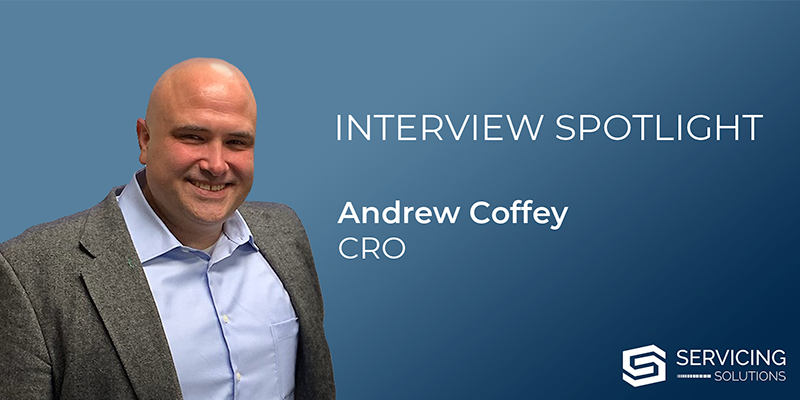Leadership is an important responsibility that impacts many beyond those with the title. At face value, a leader (e.g., supervisor, shift lead, manager, director, etc.) is the person responsible for their team’s performance. Within that, they must use their resources and acumen to produce the results that are deemed successful for their organization. The complexity lies within the nuance of each team.
Company goals often serve as a guiding light for the targets established by their teams. In many cases, these targets can be straightforward: sales quotas, NPS, collection rates, etc., but the path to success, even for different teams that share the same goal, can vary widely based on the individuals who make up each team. As a leader, it is imperative to emphasize coaching and developing the members of your team and to do so, you must first develop yourself.
This week, I got to sit down with our Chief Revenue Officer, Andrew Coffey, to talk about the importance of development in a professional environment. Andrew has been in the financial services industry for over 20 years, spending much of his time running Operations organizations. Andrew has overseen dozens of loan servicing and augmented staffing teams and has a wealth of experience teaching representatives how to adapt to change properly.
—
Adrian Frattini (AF): You’ve spent much of your career coaching and developing people and preparing them to be integrated into an entirely new environment. Is it even possible to have a lesson plan?
Andrew Coffey (AC): It’s difficult to create too much of a template because of that. In many ways, the job can be very similar from company to company, especially for loan servicing. Most companies use one of a few of the same Loan Management Systems (LMS), which is helpful because some standards can be established through those tools, but I think it’s important to learn how to be prepared for something unique each time because even the LMS piece isn’t necessarily a guarantee. Augmentation teams are obviously even more difficult because representatives may experience something entirely new each time.
AF: What would a training program typically look like for these kinds of teams?
AC: Very dynamic, obviously. Although I try to approach every coaching opportunity the same, I prefer to get to know the person and understand how they learn before anything else. The variety quickly follows, but I’ve learned through my own personal experiences that it is invaluable to get on the same page about that with the people I am coaching (or being coached by). Without that understanding, I can’t properly provide resources that are conducive to individual development. It is almost a waste of time and energy from both sides if that understanding has not been reached beforehand.
AF: I know I can definitely speak to the importance of that. Having experienced it firsthand, I know how helpful your adaptability has been in my development at Servicing Solutions. That’s worked well for us, but that must have been incredibly time-consuming with larger teams. Is that just a sacrifice that comes with the territory, or were you able to find ways to address the group while accounting for different learning styles?
AC: I think it does come with the territory. As a leader, you’re responsible for your team and their success. If someone on the team’s performance dips, that’s a reflection of you, so you’re ultimately doing a disservice to yourself by not investing the time and resources into helping them develop. It is definitely time-consuming, but I think that is part of why leadership requires a unique skill set and the type of person who is motivated by the success of others. I find it very fulfilling to help someone improve. With all this said, there are definitely ways to condense learning opportunities. At Servicing Solutions, we have every new hire read Ken Blanchard’s Legendary Service and tailor some of the lessons about our company’s principles around it. It prompts a great conversation and establishes the culture we strive for here.
AF: I have heard you talk several times about the importance of ongoing development. Can you give an example of that?
AC: Certainly! The crux of the matter here is understanding the power of focused attention on addressing the root cause of a performance issue or identifying areas needing development. Rather than overwhelming someone with numerous tasks to juggle, it’s about identifying the singular change that could yield the most significant positive impact.
For instance, imagine having two employees with identical skills and titles. One is handed a single high-impact project or area to concentrate on for a week, while the other receives a list of 15 smaller projects or areas of improvement to complete in the same time frame. The outcome is almost certain: the high-impact project or one area to focus on will likely result in higher-quality work and a chance for the individual to develop or enhance a skill.
The key lies in providing individuals the space and opportunity to learn and grow through their experiences. It’s about being available to support them if they face hurdles and allowing them to navigate their own learning journey. While the approach with multiple tasks might potentially yield similar results, it ultimately depends on the specific circumstances and the actual needs of the employee.
AF: That is a pretty powerful approach. How do you approach someone who may not be open to being developed?
AC: The time I take to get familiar with people and their learning styles is a means of avoiding that, to be honest. It helps me align with their motivations and the heights they want to reach. To me, coaching is a form of connection and requires trust. I look at someone lacking motivation as someone I have not earned the trust of, and it is my responsibility to connect with them the way they need to be heard and understood. Once the trust is there, development becomes a natural part of the relationship, just like any other. It’s a rarity to find someone who wakes up in the morning with a desire to fail, and if that is the case, we have much bigger problems than them accepting feedback.


